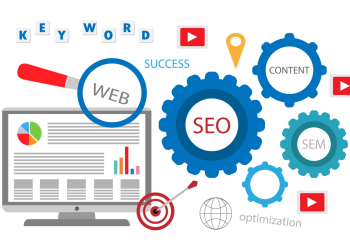Technology in business moves ever forward. What kind of developments in business technology can we expect in 2023?
Businesses around the world are coming to the conclusion that technology is absolutely essential for growth and adaptation in all markets and industries. While integrating new and emerging technologies into one’s business strategy can be a risk, it is also one of the best ways to stay ahead of competition – this is because new technologies can help businesses operate more efficiently, augment their services and operations, and provide more tailored experiences to their customers. We discussed business technology with IT support companies London-based organisations have used in the past as a means to modernize their approaches to business. After speaking to them, we concluded that 2023 will most likely see more businesses than ever turning to new technologies for business growth. But what are some of the different trends that are expected to rise to the top?
Cloud Platforms
The cloud has managed to remain a trend in business for well over a decade, which is a testament to how important the technology is in the business world (for years, business leaders have reiterated that the cloud is the future of business infrastructure).
The cloud has given rise to the Everything as a Service (XaaS) trend, including solutions like Software as a Service (SaaS), Platform as a Service (PaaS), and Infrastructure as a Service (IaaS), which have been very influential – according to companies we spoke to that have provided IT support Financial Services businesses use, the as a Service model has been taken up by some of the biggest industries in the world.
In 2023, Cloud Platforms that combine several different as a Service solutions into one will likely become much more commonplace in business. Of course, platforms like this already exist (such as Microsoft Azure); but these platforms are expect to grow in popularity and utilization.
Platform Engineering
In the mid-2000s, the concept of DevOps gained significant traction. The trouble with DevOps, however, is that it is most suited for large, advanced organisations that have a lot of resources at their disposal. For smaller organisations, authentic DevOps can be hard to manage. This is where Platform Engineering, and the Internal Developer Platform comes in.
In an era where more and more businesses are looking for the means to be able to develop their own solutions, having a robust and functional development cycles can be aided with platform engineering. This tech approach aims to develop reusable tools and capabilities that software developers can utilize when working with complex cloud-based infrastructures. Platform engineering is typically handled by a dedicate team that is separate from the development team.
Superapps
This trend has been going on for a few years now, and there are a few important examples of it – but in 2023, superapps are expected to see a boom in demand among businesses. A superapp combines the capabilities of a conventional app, a platform, and a software ecosystem into a single package. Superapps may contain any number of mini apps that allow the main app to provide a diverse array of functionalities that meet many of the end-user’s needs.
Superapps have a huge amount of potential in many sectors. For example, when we spoke to some providers of IT support for Healthcare providers, they stated that superapps could be the primary way that hospitals and other similar institutes deploy telehealth tools for their patients. This is just one example of the potential applications of superapps, but there are already many existing examples – for instance, they are beginning to be seen in the digital banking sector (an example of this is the Revolut app).












